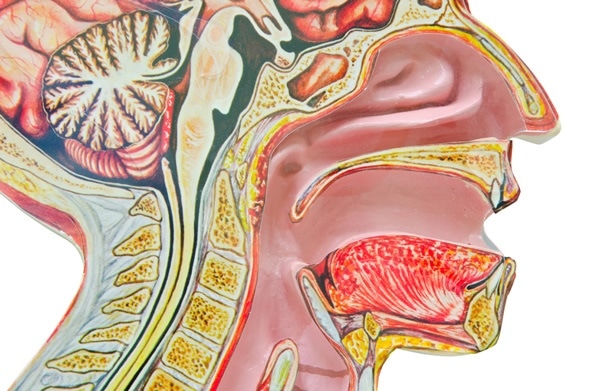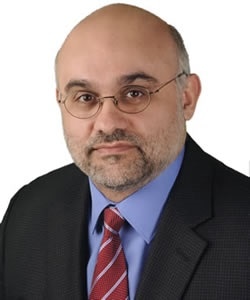Please can you give a brief history of head and neck cancer treatments?
Patients with head and neck cancer usually present with locally advanced disease and often require more than one type of treatment, which may include surgery, radiotherapy, and chemotherapy.
Traditional treatments may result in many acute and late complications, and their success is rather limited. Especially in the setting of disease recurrence or spread to other organs there is minimal curative potential.

Image Copyright: Gam1983 / Shutterstock
What recent advances have been announced to improve these treatments?
The introduction of epidermal growth factor receptor (EGFR) inhibitors about 10 years ago was a milestone in head and neck cancer therapy. A monoclonal antibody against EGFR, was the first targeted agent to show survival benefit either in combination with radiotherapy in locally advanced disease or in combination with chemotherapy for recurrent/metastatic disease.
Very recently, the immune checkpoint inhibitors, a class of drugs that stimulate the immune system against cancer, produced very encouraging antitumor activity. In a recently presented phase III randomized trial that enrolled patients with recurrent/metastatic head and neck cancer who previously received a PD-1 inhibitor demonstrated survival benefit over standard treatment. This is another milestone for head and neck cancer therapy.
What impact do you think these advances will have on patients with head and neck cancers?
The ideal scenario is to develop efficacious treatments that do not cause significant side effects. Curing the patient is a priority but is currently feasible in about half of the patients with locally advanced disease and very rarely in patients with recurrence.
Hopefully, with new therapies long-term survival may be achievable even for patients with recurrent/metastatic head and neck cancer.
What further research is needed to increase our understanding of the mechanisms underlying head and neck cancers and improve treatments?
There is still a lot to be learned about the biology of head and neck cancer. Human papillomavirus, for example, seems to be important in influencing natural history and prognosis. However, at this time, we lack predictive molecular markers that will assist in optimally customized approaches.
Future studies in the laboratory and the clinic will explore mechanisms of resistance to targeted agents and most likely lead to a new generation of active therapies.

Human Papillomavirus - Image Copyright: Liya Graphics / Shutterstock
How much of an impact do you think personalised medicine will have on the treatment of head and neck cancers moving forwards?
Head and neck cancer treatment must be personalized. It is foreseeable that better patient selection will be critical in maximizing benefit and minimizing risk.
What do you think the future holds for head and neck cancer treatments?
We have entered the era of immune-oncology. There is justified excitement and vigorous clinical testing of immunotherapy agents. Harnessing the immune system and use it in a patient’s advantage is a very important task ahead.
Other important molecular targets and novel agents are being identified and studied in the clinic. As a physician, I am particularly happy to be able to offer new treatment options to my patients.
Where can readers find more information?
About Prof. Argiris
 Professor Athanassios Argiris is an internationally recognized medical oncologist and clinical researcher with expertise in the evaluation and treatment of patients with head and neck and lung cancers.
Professor Athanassios Argiris is an internationally recognized medical oncologist and clinical researcher with expertise in the evaluation and treatment of patients with head and neck and lung cancers.
From 1994 to 2013 he held positions in prestigious academic institutions in the United States where he assumed distinguished leadership roles in oncology. He has been funded by the National Cancer Institute (NCI) and serves as the principal investigator for several completed and active clinical trials with the NCI-funded national cooperative groups of the United States.
In 2014, he moved back to his home country of Greece to join the medical staff of Hygeia Hospital in Athens, Greece, as a consultant in Medical Oncology. He has been elected Visiting Professor of Medical Oncology at the University of Crete and is an Adjunct Professor at the University of Texas. In 2016, he also assumed a faculty position at Thomas Jefferson University in Philadelphia, USA.